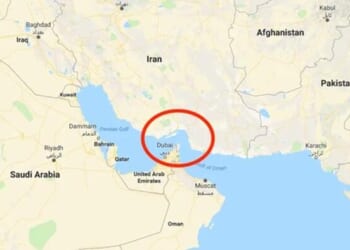Authored by Thomas Brooke via Remix News,
Six in ten long-term unemployed people in Belgium are of foreign origin, according to newly released government figures, just as a major reform of the unemployment system is set to take effect.
The data, disclosed by Employment Minister David Clarinval in response to a parliamentary question, show that only 41.5 percent of unemployment benefit recipients in 2023 had Belgian parents.
As reported by 7sur7, nearly 13 percent of the unemployed population has North African roots, primarily from Morocco, Algeria, Tunisia, Libya, or Mauritania. A further fifth have origins in other European Union member states, including neighboring and southern European countries.
The figures confirm a long-standing pattern observed in earlier studies: employment rates are lowest among foreigners from outside the EU.
In total, Belgium’s long-term unemployed population consists of 41.5 percent Belgians, 12.8 percent with Maghreb origins, 9.2 percent from southern EU countries, 7.7 percent from neighboring countries, 4.5 percent from other Asian countries, 4.5 percent of unknown origin, 4.2 percent from other African countries, 3.9 percent from Turkey, 3.8 percent from other European countries outside the EU, 3.4 percent from eastern EU countries, 3.1 percent from the Democratic Republic of Congo, Burundi, or Rwanda, and 1.2 percent from South or Central America. Taken together, those of non-EU origin account for roughly one third of all unemployed people in Belgium, and possibly closer to 38 percent when including those whose origin is listed as unknown.
“These figures confirm what we already knew,” Stijn Baert, professor of labor economics at Ghent University, told the Belgian news outlet.
“When we focus on migrants from countries outside the European Union, Belgium almost always ranks among the worst performers in Europe. More than half of unemployed non-European foreigners have been out of work for more than a year. Only Greece performs worse.”
The release of these figures coincides with a far-reaching reform of the unemployment system that will, from January 2026, abolish the right to indefinite benefits. Under the new rules, most people under 55 will be entitled to unemployment benefits for a maximum of two years, while those over 55 can continue to receive them only if they have accumulated at least 30 years of professional experience, rising to 35 years by 2030. The National Employment Office has already begun notifying affected claimants, with the first wave of exclusions — around 10,700 people — expected early next year. More than 100,000 people will eventually lose their entitlements.
Employment Minister David Clarinval, a Liberal, defended the reform as necessary to restore fairness and encourage people to re-enter the labor market. “Unemployment is not a career plan,” he said. “The main message is that everyone must work, including people of foreign origin. There is no reason why these people should be condemned to unemployment and exclusion.”
Speaking on RTL’s morning program on Wednesday, Clarinval said, “More than one in two unemployed people who will be excluded from benefits in the coming year and the year after are of foreign origin. That’s a rather astonishing figure, as far as I’m concerned.”
Clarinval said the numbers raised questions about both oversight and support. “Do all these people actually reside within the country?” he asked, noting that 5,800 cases of home fraud were detected last year. “That applies to everyone, but it means there are undoubtedly more checks to be carried out. Although now that we’re going to limit them, the question won’t really arise anymore.”
The publication of the figures provoked sharp political debate after several Belgian media outlets reported that “six out of ten people to lose their benefits are not Belgian.” Socialist MPs accused the government of stigmatizing people of immigrant background, prompting multiple fact-checks clarifying that the data refers to origin, not nationality. Many of those included in the figures were either born in Belgium to non-Belgian parents or have since acquired Belgian citizenship through naturalization.
Loading recommendations…


















